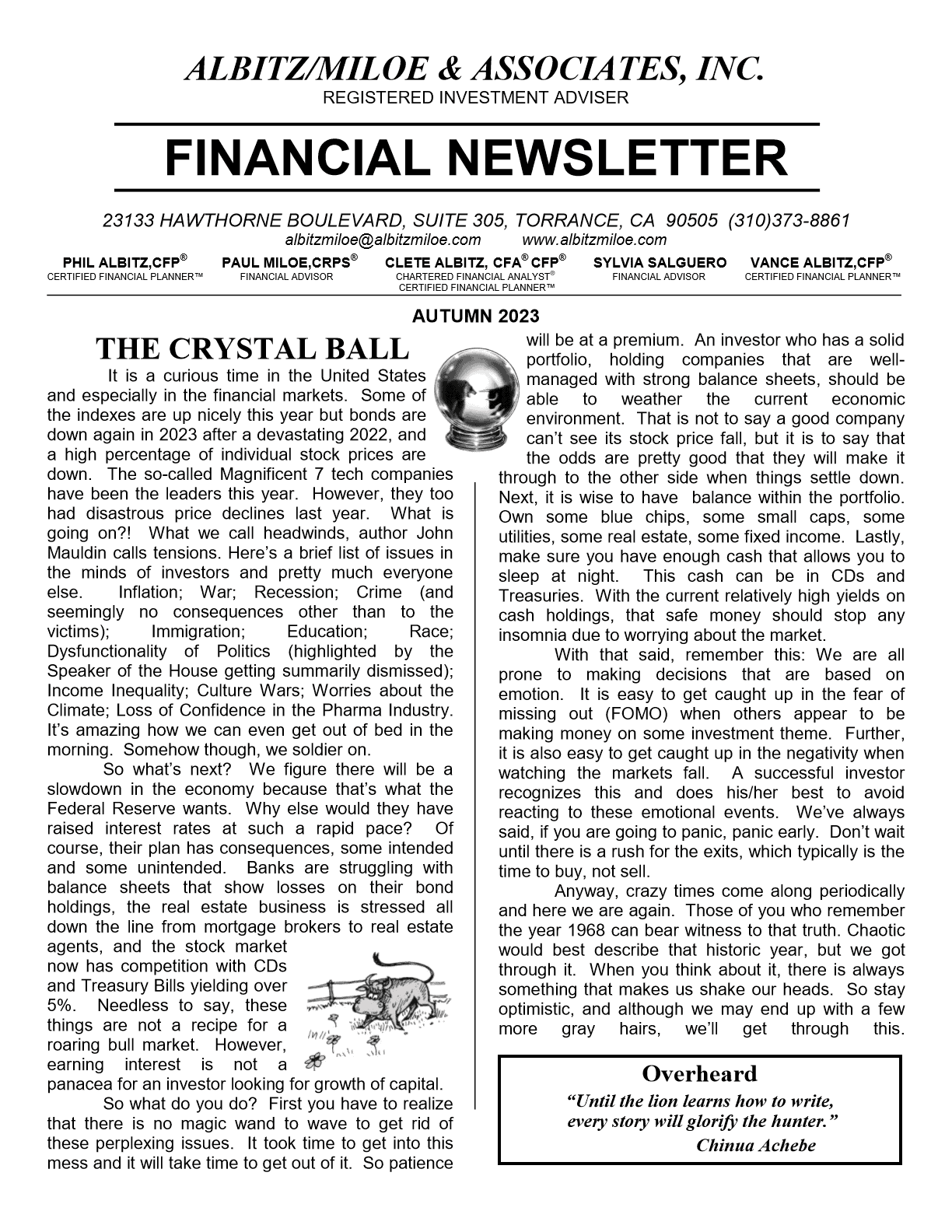Advisory services offered through Albitz/Miloe & Associates, Inc. Registered Representative of, and securities and advisory services offered through Cetera Advisor Networks LLC, member FINRA/ SIPC, a broker/dealer & Registered Investment Adviser which conducts CA insurance business through CFGAN Insurance Agency LLC. Albitz/Miloe & Associates, Inc. and Cetera Advisor Networks LLC are separate companies. Cetera is under separate ownership from any other named entity. Registered Representatives are registered to conduct securities business and are licensed to conduct insurance business in limited states. Response to, or contact with, residents of other states will only be made upon compliance with applicable licensing and registrations requirements. The information is in this website is for U.S. residents only and does not constitute an offer to sell, or a solicitation of an offer to purchase brokerage services to persons outside the United States. Individuals affiliated with Cetera firms are either Registered Representatives who offer only brokerage services and receive transaction-based compensation (commissions), Investment Adviser Representatives who offer only investment advisory services and receive fees based on assets, or both Registered Representatives and Investment Adviser Representatives, who can offer both types of services.
A/M ADV 2A 2B w Form CRS | A/M Privacy Notice | A/M Business Continuity | Cetera Online Privacy Policy | Cetera Privacy Promise | Cetera Business Continuity | Cetera Important Disclosures
© 2024 Albitz/Miloe & Associates, Inc.












